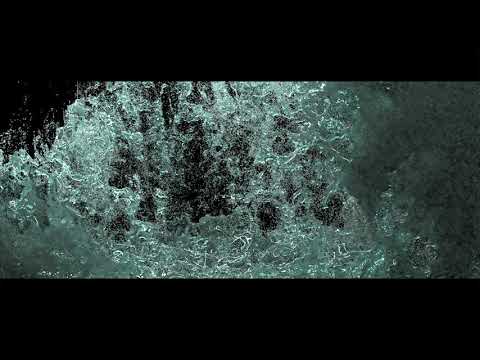As I compiled this month’s round-up of the best albums and tracks released over the last four weeks, the emails, from labels and editors alike, beginning to look back over the year as a whole, started to role in – like clockwork.
Putting aside the usual complaints that these year-end lists seem to roll around earlier and earlier each year – the lead times and work involved in compiling so much of it unfortunately seem to make that a necessity – as well as the similar, though often fair, qualms around the anxiety associated with whether one’s music is remembered on these lists, October was a very good month, for me personally at least, for music that gives you that ‘Best Of The Year’ feeling. Below, you’ll find incredible new records by artists like Tirzah, aya, Grouper and others that have completely stopped me in my tracks, frequently forcing me to rewind them and listen from start to finish all over again – a balm to the increasingly cold, autumnal days ahead of us.
You can rest assured that our own year-end lists are quite some weeks away yet, but, as with each month, keep reading below to find some of the very best new albums and tracks that tQ’s office staff enjoyed over the month of October. Remember, too, that you can set up a monthly subscription to support tQ, and receive monthly playlists, specially commissioned albums, exclusive podcasts, essays and more, by heading here.
ALBUMS
Tirzah – Colourgrade
(Domino)
There is a refreshing intimacy to Colourgrade, almost as if the recording process simply consisted of leaving a microphone in the shower and then editing out the trickling water in the background. Like the lyrics started off as simple poems on steamed-up glass. In contrast to Tirzah’s distinctively candid poetics, most of the record’s production, with the exception of the guitar-drums combo of ‘Send Me’, or the never-ending carousel vibes of ‘Sink In’, feels like it comes from a darker, less innocent place. Like a void encroaching on a perfect world. In ‘Beating’, lovers miraculously find each other in that void, and even create life. "I found you. You found me. We made life," Tirzah half-sings as static hisses and grainy loops churn like ashy stratus clouds. The generally somber sonic palette feels like a kind of liminal space where memories swirl and swim, waiting to be plucked out.
Kareem Ghezawi – read the full review here
aya – im hole
(Hyperdub)
On aya’s debut album for Hyperdub, vocals represent a flexible musical tool. Through her poetry, she conveys concrete images and succulent metaphors ("burned by the yearn I roll a rock frontside"), and by using electrifying vocal modulations, she provokes various affects, both alienating and sublime. I experience her extended cyborgian voice as the kind of shiver-inducing vocal psychedelia Kit Mackintosh describes in his recent book Neon Screams. It has a post-humanist dimension as if produced through a robotic larynx with prosthetic vocal cords (the track title ‘OoB Prosthesis’ – short for ‘out of body’ – points in this direction). But it is also about phonetics, inflections, rhymes, wordplay, and alliterations ("A sharp scratch and we start with the scalp"). Her language is full of unexpected turns.
Jaša Bužinel – read the full review here
Ydegirl – Ydegirl
(Escho)
Once the idea of alienation has crept in, you can hear it throughout Ydegirl. Though odd little electronic elements crop up across the album, the most experimental aspects come from the shapes built around acoustic instruments like the violin and clarinet. These more conventional instruments are very effective at creating dissonance and density, even when they’re standing on their own. Many of the arrangements on Ydegirl single out instruments or have them collide into each other rather than work in harmony, the effect being that the individual parts carry more weight is isolation. Despite all of the instrumentation on the album, it’s tempting to call Ydegirl minimalist because there is enough silence in the songs to almost qualify as an additional instrument. The pauses run throughout the album, feeling more notable than typical rests should simply because of their sheer number. Sometimes it’s a matter of shifting from one movement to another, sometimes it’s just a dramatic effect – the effect being a perpetual feeling of pausing for thought.
Amanda Farah – read the full review here
Eris Drew – Quivering In Time
(T4T LUV NRG)
Quivering In Time bears a striking resemblance to Eris Drew’s mixes, with stacked layers of vinyl samples and manipulations serving as a fast-moving foundation for hand-played keyboard, walls of percussion, ricocheting vocals and strummed guitar chords. Much like her selections, there’s also no room for filler, with each track functioning as a stand-alone accolade. Take ‘Show U LUV’ for instance. Sandwiched midway through, it stands as a homage to the disco roots of Chicago house; a peak-of-the-night, four-to-the-floor beat punctuated by a pitched-up chorus and a florid melody. The same is true of ‘Howling Wind’, a sparkling, cowbell-tinged affair adorned by synthetic flute and handclaps. Opening with a blaring siren wail, the influences behind ‘Sensation’ are more in line with the industrial-funk-techno fusion of 1980s outfit Information Society. The shuffling rhythm builds to a crux with piano riffs, before breaking down into a meandering, echo-laden snippet of cheers and laughs. It brings to mind 1990s chill-out room anthems such as Art of Noise’s ‘Moments In Love’ or The KLF’s spacey acid house experiments – weird, ambient electronica played by the likes of Mixmaster Morris for an audience of floor-ridden, tripped-out ravers.
Hannah Pezzack – read the full review here
Wyndow – Wyndow
(Summer Critics)
This eponymous collaboration between Trembling Bells frontwoman Lavinia Blackwall and indie shape-shifter Laura J Martin finds its origins in a shared admiration of Robert Wyatt. The pair initially came together to make a version of ‘Free Will And Testament’, and from this springs a project fraught with ontological introspection as being, wanting, knowledge, and perceived identity all fight for attention across the album’s 11 tracks. These preoccupations eventually find succour in what Martin charmingly calls the "worry gym." The record retains a good portion of Wyatt-like melody and harmonic detail, owing a lot to jazz, but within and around this there is great timbral exploration, something of past practice from each performer, a compositional approach to production, and a well-explicated use of Minimalism where the pattern-based composition of Steve Reich and the like find a comfortable home alongside beautifully chosen chord progressions and glorious fleeting moments of chromatic shifting.
Johny Lamb – read the full review here
Circuit Des Yeux – -io
(Matador)
"If it’s good for you, then it’s good for me," Haley Fohr, AKA Circuit Des Yeux, sings on ‘Dogma’, from her sixth album, -io. That song seems to be about Fohr looking for faith when everything around you is falling apart. In a way that is what the album seems to be about. Not necessarily about faith, but about trying to keep it together.
On -io, Fohr wanted to write about joy. She had recently lost a friend and the grief was too much. She thought trying to channel joy would be the right way to go. An artist’s residency at Robert Rauschenberg’s house in Florida had been arranged, but there, Fohr experienced even more despondency. After returning to her Chicago home, the pandemic hit. Grief was everywhere. To deal with this, Fohr conceived -io. A place where everything is continually ending, all the time.
Nick Roseblade – read the full review here
MrUnderwood – ams – Umber Ne
(The state51 Conspiracy)
On ams – Umber Ne, Sam Underwood was tasked to record an LP using a musical instrument he’d built for the occasion. It’s all dead crafty in a don’t-call-it-steampunk way, and absent being able to see it happening in the soldered flesh, actually sounds good too! Certainly if you dig free folk at its least song-based and sound art at its more cheerful, it’s one for you. Plenty of what you hear is played, as opposed to merely controlled, by Underwood, like the bucolic jazz woodwind on ‘Rone’ and the tentative, clop-hooved backbeat of ‘Aster’, but he couldn’t have made all this with his primitive humanoid appendages. ‘Ilt’, a dulcimer-based composition, is intense and suitably hammering – dense clang that’ll make you believe a machine digs Nissenenmondai.
Noel Gardner – read the full review here
Charlotte Greve – Sediments We Move
(New Amsterdam)
Sediments We Move brings together a myriad of influences from Greve’s past and present musical explorations, including long-time collaborators like Wood River and Berlin-based choir Cantus Domus, with whom Greve first collaborated in 2017. Like different layers of a cake she serves (free) jazz, ambient, metal, noise, rock, and choral music – at times all in one composition. Just like the layers of the cake, enjoyed as a whole, the genre-fluid compositions make for surprising sonic experiences. Despite the very different genres, the music never sounds fragmented; each phase is long enough for the musicians to explore the genre, to pick up motifs and melodies, and to develop them.
Marthe Lisson – read the full review here
Grouper – Shade
(Kranky)
Shade is made up of songs spanning Liz Harris’ career, providing evidence that for as prolific as she has been — this is her twelfth album in 15 years — there was still something left in the vaults. The record stands in stark relief from recent Grouper output, first and foremost for its production qualities. Those familiar with older Grouper recordings will recognise the swampy reverb of ‘Followed The Ocean’ or ‘Disordered Minds’ that characterised her early work but have been absent in later years. There is an overall lo-fi aesthetic to all of the recordings which helps to tie the newer and older songs together cohesively. Nothing sounds out of place, nothing sounds too conspicuously clean.
It’s also striking that the guitar is the prominent — really, only — instrument used on Shade. This lends a demo track feeling to songs with the most barebones production, a trait underscored by the lulling, plodding pace of ‘Ode To The Blue’ and the halting approach of ‘The Way Her Hair Falls’, not to mention the false start she keeps in the middle of the latter song. And as someone who normally layers her vocals so artfully, that more of the seams in this technique are visible on songs such as ‘Pale Interior’, emphasises that sense of songs having been in early stages, but also lends them a different, fractured emotional quality.
Amanda Farah
Audiobooks – Astro Tough
(Heavenly Recordings)
The second album by Evangeline Ling and David Wrench’s Audiobooks is decidedly more focussed than its predecessor, 2018’s barmy and freewheeling Now! (in a minute), but that doesn’t mean it’s any less thrilling. The interplay between Ling’s shapeshifting vocals – sometimes tender, sometimes terrifying – and Wrench’s dynamic wonky-pop instrumentals that makes them so great has only got tighter; whereas before their music was based around the sparks that emerged when their two styles clashed against each other, Astro Tough sees everything burst in unison into flames. Throughout the record, they’re still firing in a thousand different directions – grizzly dub on ‘The English Manipulator’, blasting melancholy synth-pop on ‘First Move’, gorgeously tender on ‘Farmer’, manic on ‘Lalala It’s The Good Life’ – but always attacking in tandem. Each song is a vastly different part of an extremely satisfying whole, and further proof that they’re two of the most forward-thinking pop artists of their generation.
Patrick Clarke
TRACKS
Jlin – ‘Embryo’
The lead track from Jlin’s first full release in more than three years sees the Indiana producer combine the contorted, shifting footwork rhythms of her early releases with mutant strains of techno, resulting in one of her hardest tracks to date.
Christian Eede
Cate Le Bon – ‘Running Away’
Cate Le Bon’s next record, Pompeii, was recorded entirely alone during what she’s called the "uninterrupted vacuum" of lockdown. The first single, ‘Running Away’, finds something beautiful from all that gloom, a tremendous languid melody bubbling up from murky depths.
Patrick Clarke
Ben LaMar Gay – ‘Oh Great Be The Lake’
Composer and cornet player Ben LaMar Gay moves satisfyingly around the edges of jazz, folk, pop and electro acoustic collage; and this taster suggests that his next album Open Arms To Open Us, out next month, will be quite the thing.
John Doran
Blawan – ‘Under Belly’
Blawan’s distinctive brand of crunchy modular techno rubs up against a nightmarish vaudevillian lead melody – the sound of a producer at the very top of his game right now.
Christian Eede
Deep Tan – ‘tamu’s yiffing revenge’
Speedy Wunderground’s unfathomably consistent run of tremendous singles shows no sign of slowing down. Their latest sees East London trio Deep Tan deliver what they describe as "a story of furry lust," a blast of spartan new wave that’s utterly thrilling.
Patrick Clarke
Batu – ‘Inner Space’
‘Inner Space’, from the first full EP by Timedance label founder Batu in over two years, is a dancefloor destroyer built around hulking drums and the producer’s sharp ear for head-spinning sound design.
Christian Eede
Legss – ‘Hollywood: A Film By The Reids’
This isn’t the best track so far by Legss (that would be the utterly unhinged ‘Letter To Huw’), but the ambition of this short cinematic vignette suggests that this band are going to have, at the least, a very interesting 2022.
John Doran
Tama Gucci – ‘Challenge’
The lead track from emerging New York artist Tama Gucci’s new EP, Almost Blue, is a delightfully breezy cut that merges early ’00s 2-step UKG with the hyperpop melodies and aesthetics of A.G. Cook and the rest of the PC Music stable.
Christian Eede







